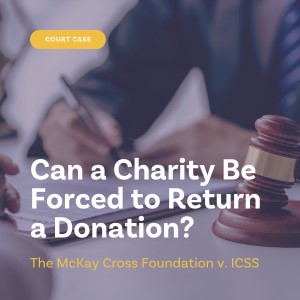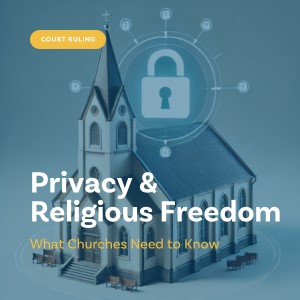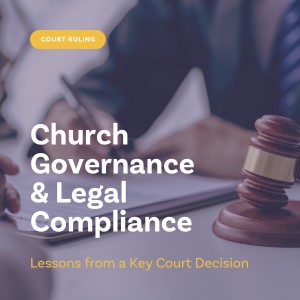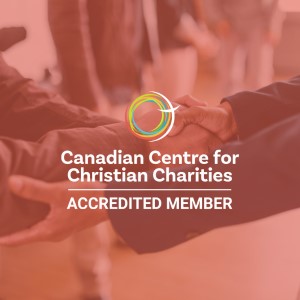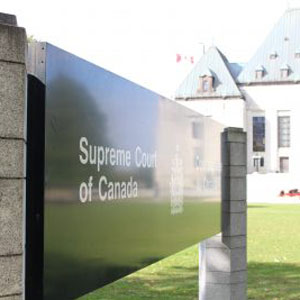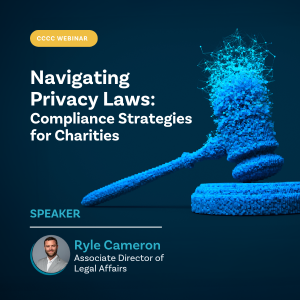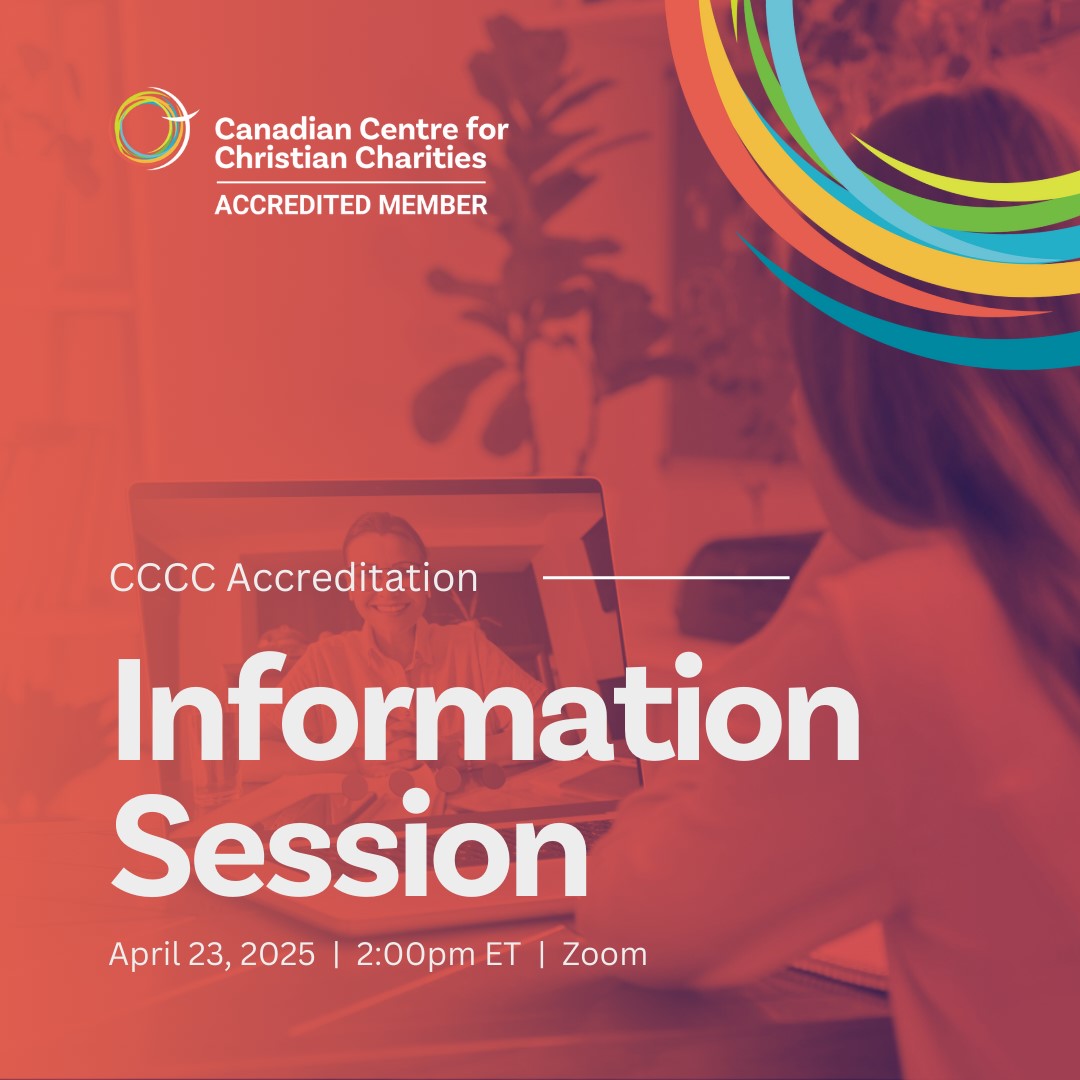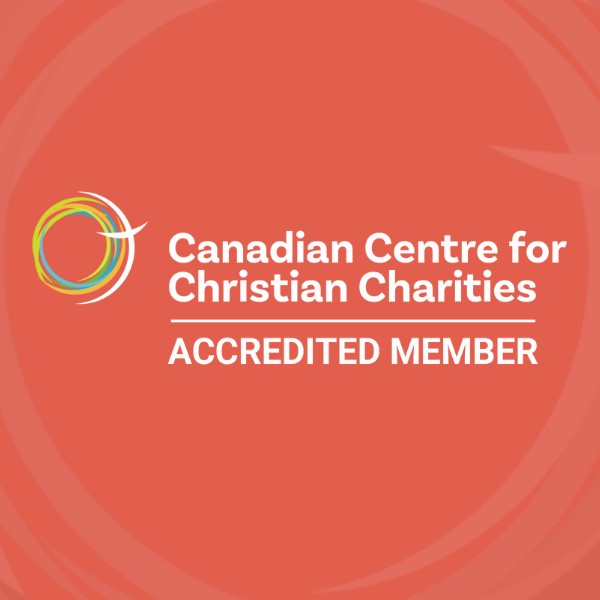
Curtis Towns
Head of Finance and Accreditation
What's Inside:
This month’s CCCC Bulletin is all about trust and accountability. This issue highlights exemplary and best practices that help Christian charities and churches maintain transparency, integrity, and strong governance.
Explore our featured resources, including guidance on business name registration, insights into donation return policies, and a look at privacy laws impacting churches. We also break down a key court ruling on church governance and legal compliance to help your organization stay on track.
Learn how CCCC Accreditation can strengthen donor confidence and position your ministry for long-term success. In our Charitable Sector Updates, discover how CCCC advocates for charities through legal interventions and get the latest on CRA’s evolving regulatory landscape.
With tax season approaching, now is a great time to review key financial and compliance topics. Be sure to check out discussions on The Green about HST and facility rentals, reimbursement policies, and issuing T4A slips—practical conversations that may be relevant to your organization.
Finally, don’t miss out on our upcoming webinar on privacy compliance—a must for charities navigating today’s digital challenges.
Dive in, stay informed, and continue leading with trust and accountability in every aspect of your ministry.
Is Your Charity’s Name Working for You? What You Need to Know About Business Name Registration
Your charity’s name is more than just a title; it’s your identity and first impression, and it is a key part of how donors connect with your mission. But did you know that your corporate name (legal identity) and business name (public-facing name) can differ? And if your charity operates in multiple provinces, you may need to register your business name separately to stay compliant.
Our latest resource breaks down what charities need to know about business name registrations across Canada, including provincial requirements, renewal timelines, and potential penalties for non-compliance.
Stay informed and ensure your charity’s name works for you!
Read moreCan a Charity Be Forced to Return a Donation?
A recent court case, The McKay Cross Foundation v. ICSS, highlights an important legal question: Can donors demand their gift back if it wasn’t used as expected?
In this case, a donor sought to recover a $100,000 donation, claiming it was meant to help buy a home for individuals with disabilities. When the house wasn’t purchased, the donor requested a refund, but the court ruled that the donation was given without conditions and could not be returned.
To learn more about the case and what it means for your charity, read the full text in our Knowledge Base..
Read morePrivacy & Religious Freedom: What Churches Need to Know
A recent BC Supreme Court ruling (Vabuolas v BC IPC, 2024) confirms that religious organizations are subject to privacy laws. The case involved two Jehovah’s Witness congregations refusing to disclose membership records, citing religious confidentiality. The court upheld that BC’s privacy law (PIPA) does infringe on religious freedom but found the infringement justified.
Churches and ministries must ensure their record-keeping complies with privacy laws. Membership and pastoral records may be subject to disclosure, and sensitive spiritual notes should be kept separately from personal data. This case could shape future privacy and religious freedom rights with an appeal filed.
Read more to understand how this decision could impact your organization.
Church Governance & Legal Compliance: Lessons from a Key Court Decision
When can courts intervene in church governance? A recent Ontario Court of Appeal ruling (Birhane v Medhanie Alem Eritrean Orthodox Tewahdo Church, 2023 ONCA 815) explores this question, addressing a leadership dispute, bylaws, and the role of Canon law in an incorporated church. The case highlights key legal considerations for religious charities navigating governance challenges.
If your church or charity is incorporated, are you confident your governance practices align with both legal and internal obligations? This ruling has critical lessons on bylaws, AGMs, and the risks of governance missteps.
Read more to understand how this decision could impact your organization.
Read moreIs Your Ministry Built to Last?
CCCC Accreditation is more than a seal; it’s a commitment to integrity, accountability, and excellence in Christian ministry. Accredited charities demonstrate the highest financial stewardship, governance, and donor trust standards.
By becoming accredited, your ministry strengthens its reputation, builds donor confidence, and gains access to exclusive resources designed to support your mission.
Join our growing network of organizations that are leading with integrity and making a lasting impact.
Discover how CCCC Accreditation can help your ministry thrive.
Read moreCCCC Interventions - Did You Know?
Did you know that CCCC has intervened in court and tribunal cases since 1993? And that we've intervened at the Supreme Court of Canada half a dozen times? This is part two in our “Did You Know” series about CCCC interventions, a significant and important part of our advocacy work. Missed part one? Read our March Bulletin to find out what intervention is all about.
This month we'll answer: how does CCCC choose intervention cases?
When CCCC decides whether to intervene in a case, several factors are taken into account. The main consideration is the legal, regulatory, or policy issue at the heart of the case. Key questions include: Is the matter of significant national importance? Does it affect the ability of member charities to fulfill their charitable goals? Does it relate to religious beliefs or practices, particularly those associated with Christianity? Is it aimed at clarifying or addressing the role of religion as a charitable purpose? And, what impact will the case have on the legal and regulatory landscape for charities, both in the short and long term?
The core legal principles are always CCCC’s top priority. Even if the main parties involved in the case have different beliefs, reputations, or positions—possibly ones that CCCC’s strongly disagrees with—the focus remains on the core principles at stake and not with any specific party's identity or stance.
Next Bulletin, we'll look at some of CCCC' past interventions. In the meantime, here's a great look at some of our advocacy work from the past, and for a more recent update, check out our Legal Affairs Updates, released each November and June.
Federal Taxpayer's Ombudsperson Reports that CRA's Tasks are Burdensome
You may recall new trust reporting requirements were introduced last year in an effort to increase transparency of all trusts' beneficial owners - the ultimate recipients of the trust property. Much confusion was caused by the reporting requirement for trusts, particularly bare trusts and trusts internal to charitable organizations.
Organizations put a lot of work into ensuring they reported their trusts, even without some of the desired clarity, but then were given a reprieve on the last business day before the filing deadline as the CRA announced it would not require bare trusts to file a T3 return for the 2023 tax year unless requested.
After this announcement, many groups reached out to the Federal Taxpayer's Ombudsperson and asked they examine the CRA's communication and timing of the reporting exemption, which they did so.
The Ombudsperson found "the main issue to be that the CRA was tasked with administering legislation that was burdensome" and was hampered by its inability to provide legal advice - e.g., whether a bare trust existed or not. However, it still had some opportunities to "provide clear and timely information" but did not, and "administration of the new trust reporting legislation led to unintended consequences". It ended by noting that "change is needed for the benefit of taxpayers and the CRA" because "compliance should be as easy as possible, especially considering that Canada’s tax system is based on self-assessment." The result was 5 recommendations centering around the way CRA communicates to taxpayers and other departments within the federal government, and whether a unique form for bare trusts should be added that simplifies the reporting mechanism.
Quick Picks

CCCC staff are constantly reading news, reports, and other resources to stay on top of developments in the charitable sector. We think you'll find these picks helpful!
- What’s on our Radar in 2025: Canada’s Privacy and AI Landscape
- A Practical Approach To Enhancing Cybersecurity Trust
- Requiring a Release in Exchange for Contractual Entitlements Has Serious Consequences for Employer
Events
Navigating Privacy Laws: Compliance Strategies for Charities Webinar
April 16, 2025 | 2:00 pm ET
We’re excited to invite you to Navigating Privacy Laws: Compliance Strategies for Charities, taking place on April 16, 2025. This engaging session will be led by Ryle Cameron - Accociate Director of Legal Affairs, who will guide us through changes in privacy laws as a response to more sophisticated technology, the rise of cyber attacks, and the increasing use of AI.
If you’re looking to connect with like-minded professionals, or even connect with like-minded professionals, this webinar is not to be missed!
We hope you’ll be part of this insightful conversation. See you there!
Accreditation Information Session
April 23, 2025 | 2:00 pm ET
Christian ministries like yours must operate with accountability and integrity. Doing so is fundamental, not just for the smooth conduct of your internal operations. Still, it also sends a resounding message to the broader community and donors that your ministry is trustworthy. CCCC Accreditation will assist your ministry with demonstrating your commitment to high standards of integrity and accountability. To find out more about the process of becoming accredited by CCCC, join us for a one-hour information session, held in webinar format, on April 23 at 2pm Eastern.

Reimbursements For Purchases Only In Current Year
There's a great ongoing discussion about gifts-in-kind, fair market value, and the difference between reimbursements and donation receipts. It also covers how to account for the year a donation is made and whether that timing matters. With tax season approaching, now is a great time to join the conversation!
Read moreHST On Church Facility Rental
This discussion is a great refresher on GST/HST rules for registered charities, covering everything from becoming a GST registrant to how it impacts insurance claims, rental invoices, exempt supplies, and taxable supplies. Have insights or experiences to share? Join the conversation today!
Read moreT4A Questions
A user is asking whether to issue a T4A to a contracted therapist personally or to their corporation. The discussion covers employment conditions and invoice details and includes input from CCCC staff. Do you have insights to share or wonder the same thing about T4A slips? Join this timely conversation as tax season approaches!
Read moreUnlock the Clergy Residence Deduction with Confidence!
Are you responsible for managing the Clergy Residence Deduction (CRD) at your charity? Understanding the ins and outs of CRD can be complex—but we’ve got you covered!
Our self-paced online course, "Clergy Residence Deduction Demystified," available now on the CCCC Learning Table, provides a step-by-step guide to eligibility, completing the T1223 form, payroll considerations, and CRA compliance. With expert insights, real-world scenarios, and practical examples, this course equips you with the tools to navigate CRD accurately and confidently.
Don't miss this essential training for staff of Canadian Christian charities. Register today and ensure your clergy members receive the benefits they deserve!
Sign up now!Services
A Pro When You Need One
The professionals listed in our Professional Associates Directory provide services to charities and practice in four general areas: law, accounting, insurance, and consulting.

Contact Details
Canadian Centre for Christian Charities
PO Box 335 STN Waterloo
Waterloo, ON N2J 4A4
(519) 669-5137

